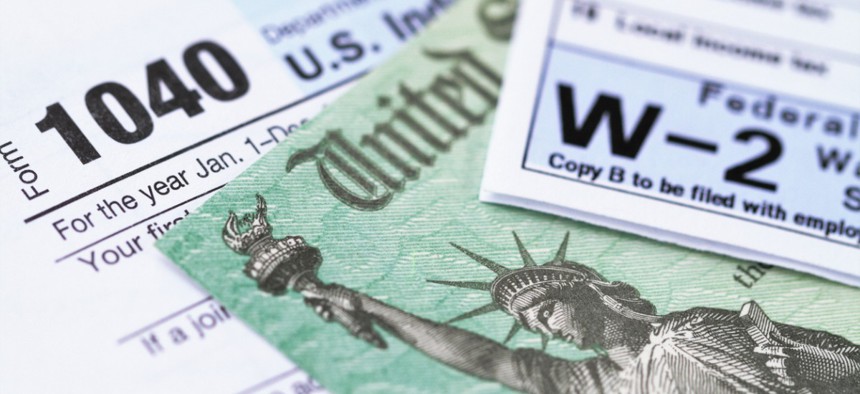IRS Should Prioritize Auditing and Customer Service Modernization, Former Officials Say

NoDerog/istockphoto.com
Machine learning could be used to better serve taxpayers and help close the tax gap, they said.
After years of struggling to upgrade its various software systems that execute its tax code, the Internal Revenue System is on the verge of implementing large-scale improvements in its legacy software systems, some of which have been in place since the 1960s.
Fred Forman, the former associate IRS commissioner for modernization, clarified that the two critical areas within the IRS that need software updates include customer service and auditing services and processes.
“The whole quality of customer service is one weak spot that needs to be shorn up,” he told Nextgov, specifying the timeliness and available information needed to be improved. During the panel discussion hosted by National Academy of Public Administration, he noted that the IRS only answered only 3% of phone calls to its helpline over the last filing period.
Moderating a panel featuring former IRS and Department of Homeland Security Chief Information Officer Richard Spires and former Government Accountability Office Director of IT Management Issues David Powner, Forman discussed on Tuesday how modernizing its legacy systems can lead to closing the nation’s tax gap, which amounted to an astounding $600 billion dollars as of 2019. The panel was hosted by the National Academy of Public Administration.
The panelists noted that consistent multiyear funding is critical to optimizing the agency’s business operations. Last year House lawmakers introduced the IRS Enhancement and Tax Gap Reduction Act of 2020, which would give the organization an additional $500 million in federal funding. The former officials argue those funds would need to go toward modernization efforts.
Some of those efforts would go toward overall IT governance modernization, but panelists highlighted the need to simplify customer service options and improve audit processes as paramount concerns.
Within the audit process, officials said there is often a lack of documentation dictating which taxpayers need to be audited based on their returns. This lack of data can lead to inefficiency in the audits IRS officials elect to review and contribute to the tax gap.
Specifically, Forman said that the IRS could implement machine learning to better train software on how desk revenue agents evaluate filed taxes and select audits. This new software would also provide comprehensive customer data and history to agents, with the aim of simplifying ways taxpayers can communicate with IRS officials and resolving issues at a faster rate.
“A huge fraction of the audits that they do––20 to 40%––are what they call ‘no change audits’ ” Forman said. “They really need a top-down plan to figure out how to literally look at customer service as a whole.”
Forman conceded that implementing machine learning into IRS auditing systems could pose “some risk” of developing biases into the auditing processes, and stressed that any artificial intelligence used within the IRS would work to help focus auditors on which filings they need to review.
Should machine learning technology be deployed to help select audits, it “will permit future revenue agents, especially those that do not have that depth of experience, to focus from the outset of an audit on a specific issue or set of issues, rather than kind of gather a lot of records and do a broader forensic search for issues,” Forman said.
Despite a rollercoaster of funding available to the agency, most panelists agreed that the IRS’s current and former staff have made positive strides in upgrading its services, but the IRS still needs steadier funding for consistent upgrades.
“The endpoint solution is completely modernized … the tax and accounting systems at the heart of all this, it’s not on the horizon, it is still a long way away,” Forman said.
Current leadership at the IRS broadly agrees. In a recent testimony before the Senate Finance Committee, IRS Commissioner Charles Rettig added that move funding is needed to continue modernizing the agency’s business operations.
“Greater investment in technology can help us properly assist compliant taxpayers. Modernization of our systems coupled with technological advances in artificial intelligence, data and analytics will continue to enhance services to compliant taxpayers and make tax avoidance by others more visible and more difficult,” Rettig testified in June.






